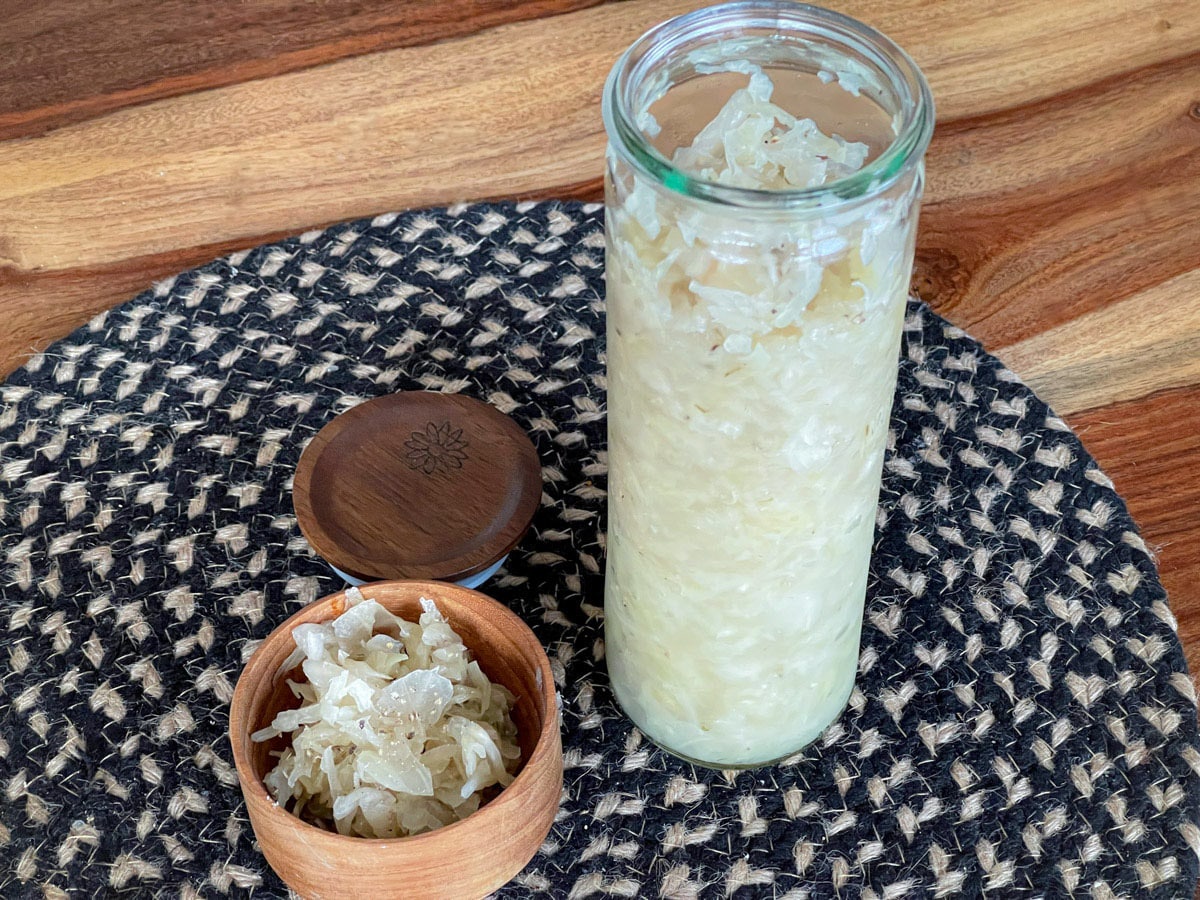
Cultured Vegetables FAQs
Frequently Asked Questions About Cultured Vegetables
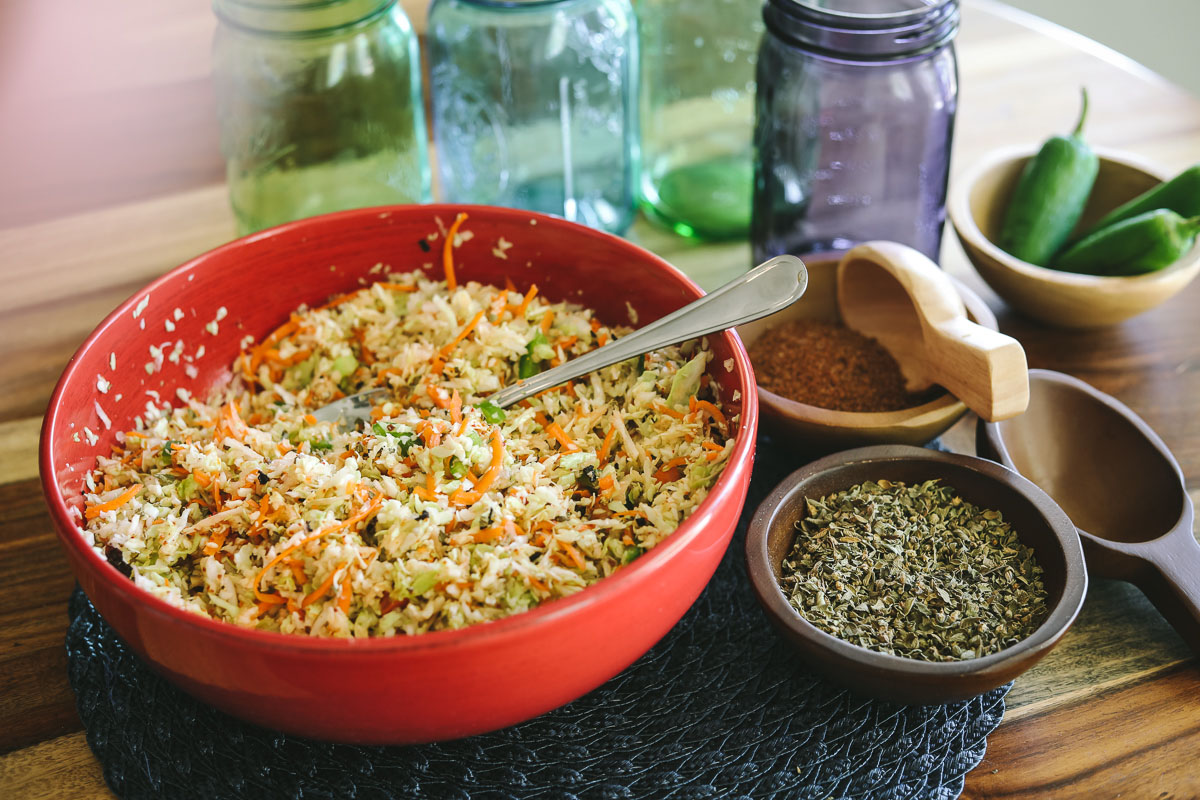 It's my favorite time of the year - when I have an abundance of fresh vegetables that I can ferment. Fermented vegetables can last nine months stored in the refrigerator. They can provide you with months of your own probiotics that are much stronger than supplements. When you eat a probiotic food, the food itself provides a protective armor that helps shield the friendly bacteria. It also speeds the transport out of the stomach, thus keeping the good bacteria intact. Probiotic pills are often trapped in the acids of the stomach, and the probiotics are killed before the body ever gets a chance to use them. Forget everything you think you know about vegetables and let me tell you what happens when you culture them. Grow your own probiotics in a jar of vegetables, and you’ll be shocked and amazed at all they can do. Cultured vegetables have special powers that go far beyond regular vegetables. I love them and reach for them day after day and in times of special need. They can be powerful food – like medicine – and so I always have several jars in my refrigerator. I encourage you to do this as well; because there will come a time when you will need their help and, like me, you will be so thankful you made some. Then you will be convinced of their special abilities and you won’t have to take my word for it. Everybody knows vegetables are good for you, but cultured veggies go far above regular vegetables. Check out the many reasons I eat cultured vegetables and trust me . . . you want a jar in your fridge. You won’t regret it.
It's my favorite time of the year - when I have an abundance of fresh vegetables that I can ferment. Fermented vegetables can last nine months stored in the refrigerator. They can provide you with months of your own probiotics that are much stronger than supplements. When you eat a probiotic food, the food itself provides a protective armor that helps shield the friendly bacteria. It also speeds the transport out of the stomach, thus keeping the good bacteria intact. Probiotic pills are often trapped in the acids of the stomach, and the probiotics are killed before the body ever gets a chance to use them. Forget everything you think you know about vegetables and let me tell you what happens when you culture them. Grow your own probiotics in a jar of vegetables, and you’ll be shocked and amazed at all they can do. Cultured vegetables have special powers that go far beyond regular vegetables. I love them and reach for them day after day and in times of special need. They can be powerful food – like medicine – and so I always have several jars in my refrigerator. I encourage you to do this as well; because there will come a time when you will need their help and, like me, you will be so thankful you made some. Then you will be convinced of their special abilities and you won’t have to take my word for it. Everybody knows vegetables are good for you, but cultured veggies go far above regular vegetables. Check out the many reasons I eat cultured vegetables and trust me . . . you want a jar in your fridge. You won’t regret it. ![]()
-
Seasonal Allergies
-
Safest and best food method to preserve vegetables
-
Adds vitamins and minerals
-
Strengthens the good bacteria, kills harmful pathogens
-
Removes pesticides
-
Helps relieve stomach distress of any kind
-
Cancer prevention
Frequently Asked Questions About Cultured Vegetables
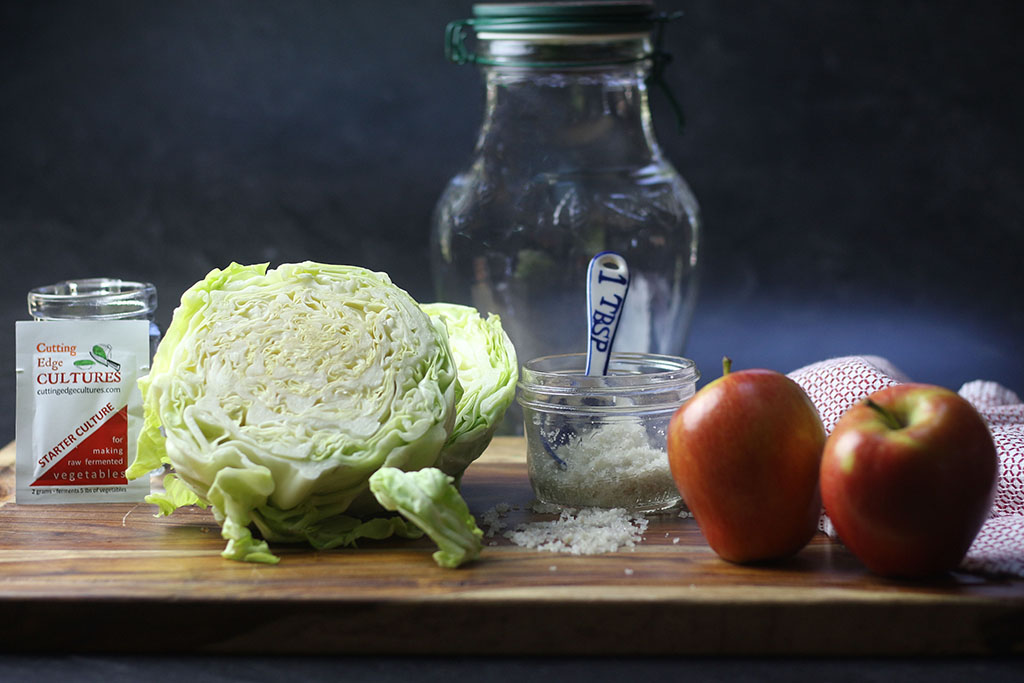
Do I need to use a starter culture?
No, you do not need a starter culture to make cultured veggies. However, by using a starter you will receive more probiotics and a lot of other benefits. Let me explain your options and you can better choose which is the best method for you. I have tried all the methods below and these are the things I have learned in my years of experience and through trial and error, which is a great teacher. I only sell things in my store that I like and use and I will always shoot straight with you about everything that I personally do.
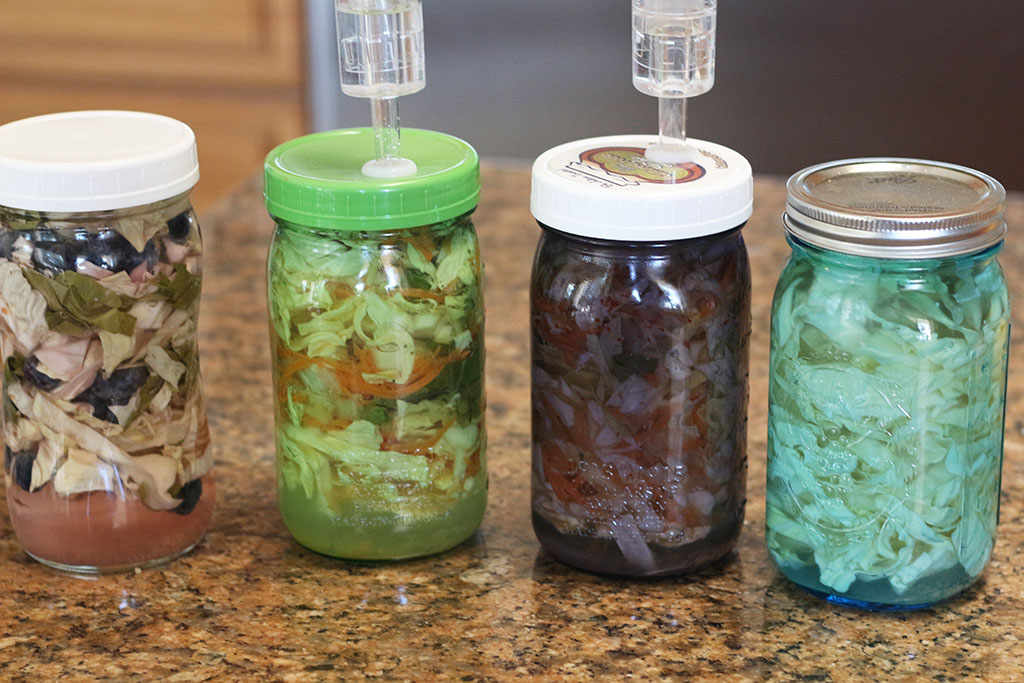
What kind of jar should I use to make cultured vegetables?
This particular topic gets me all riled up when people say you have to use an airlock jar to make cultured veggies or you'll harm yourself. It's simply not true and when they tell you this . . . follow the money! It also makes for a sensational blog that drives traffic to their website and scares people, and then folks don't make cultured veggies because they're afraid. I sell airlock lids too and think they're great, but I am by no means going to say you have to use them and only them. I want you to get better and to make cultured veggies any way you can, be it a canning jar, clamp-down lid, or crock. They all work great and I've used them all!
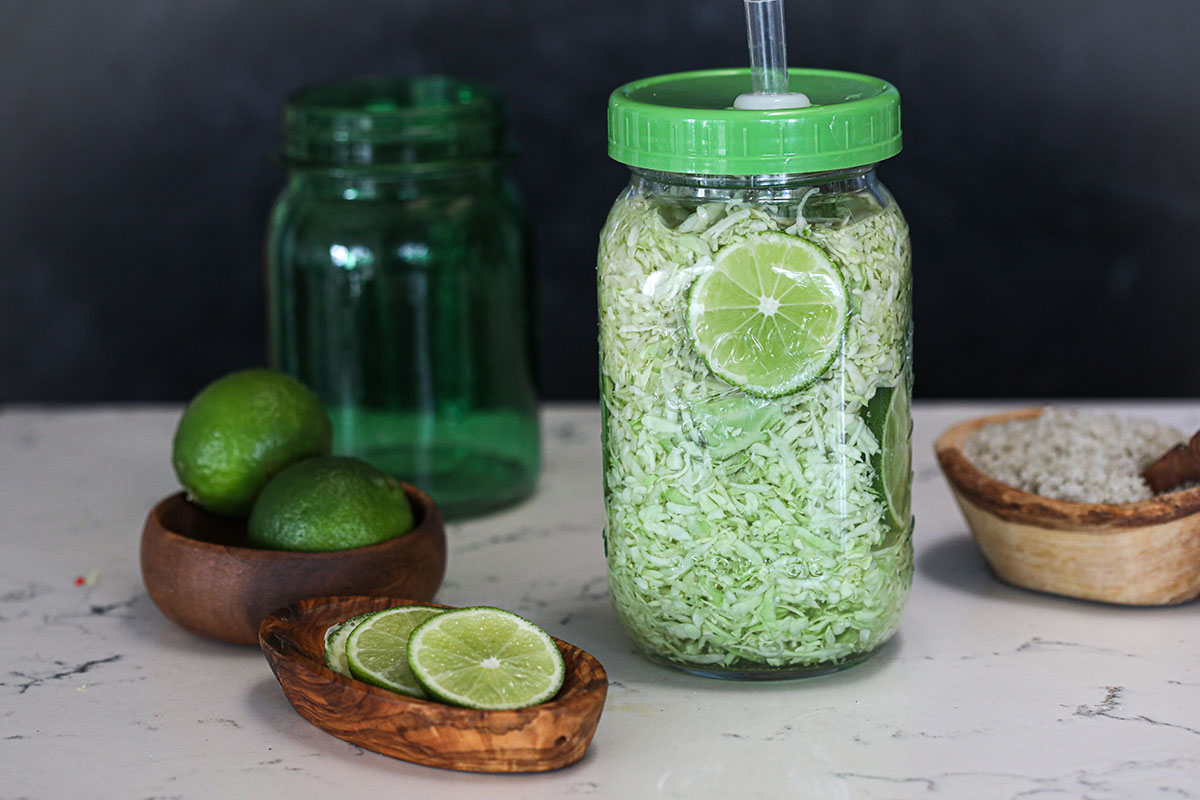
My vegetables are rising in the jar. Is this okay?
Yes, this is perfectly normal and expected. Fermented vegetables should rise and expand as they culture, and you’ll find that they can often be very bubbly. This is a normal part of fermentation.
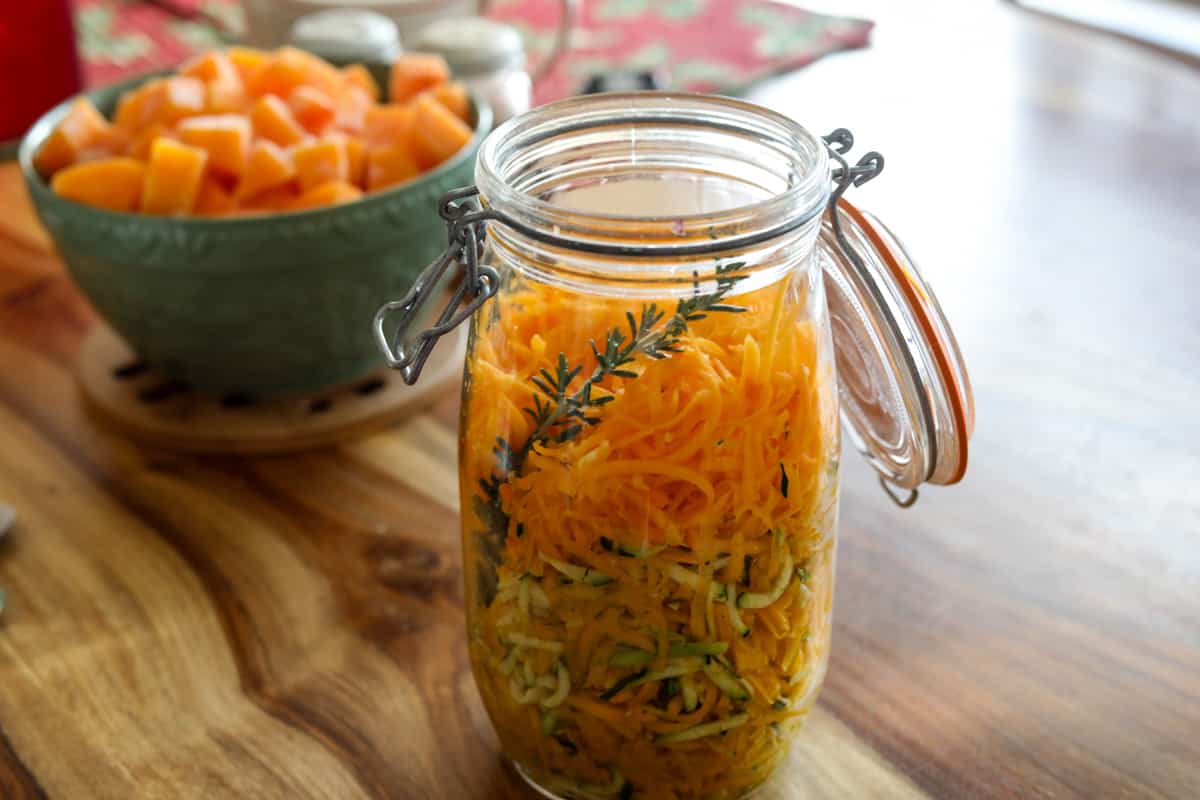
Can cultured vegetables develop botulism?
No. Botulism is an issue with canned goods because the heat used in canning kills all the good bacteria. When culturing foods, the healthy bacteria thrive and make it impossible for the bacteria that cause botulism to survive. Learn more about the safety of cultured foods.
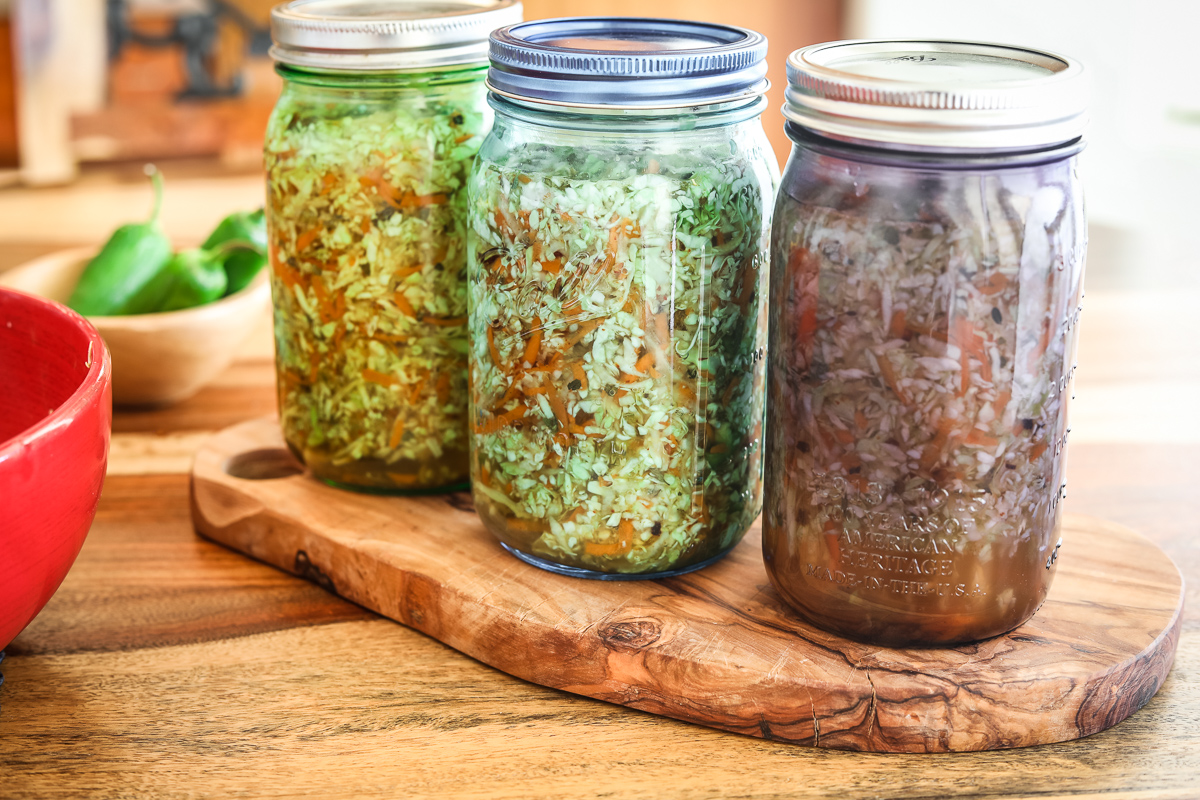
Can cultured veggies be fermented with metal lids?
Yes, you can use regular metal canning lids to make cultured vegetables. If you do use a metal lid, it is best to leave lots of room in the jar to keep the veggies from touching the lid if they should expand. Over time, the ferments will start to break down the metal in the lids but this takes quite a while so it is best to not have them in constant contact with them. I like plastic lids for fermenting best, but if a metal lid is all you have, just leave extra room so they can expand and ferment.
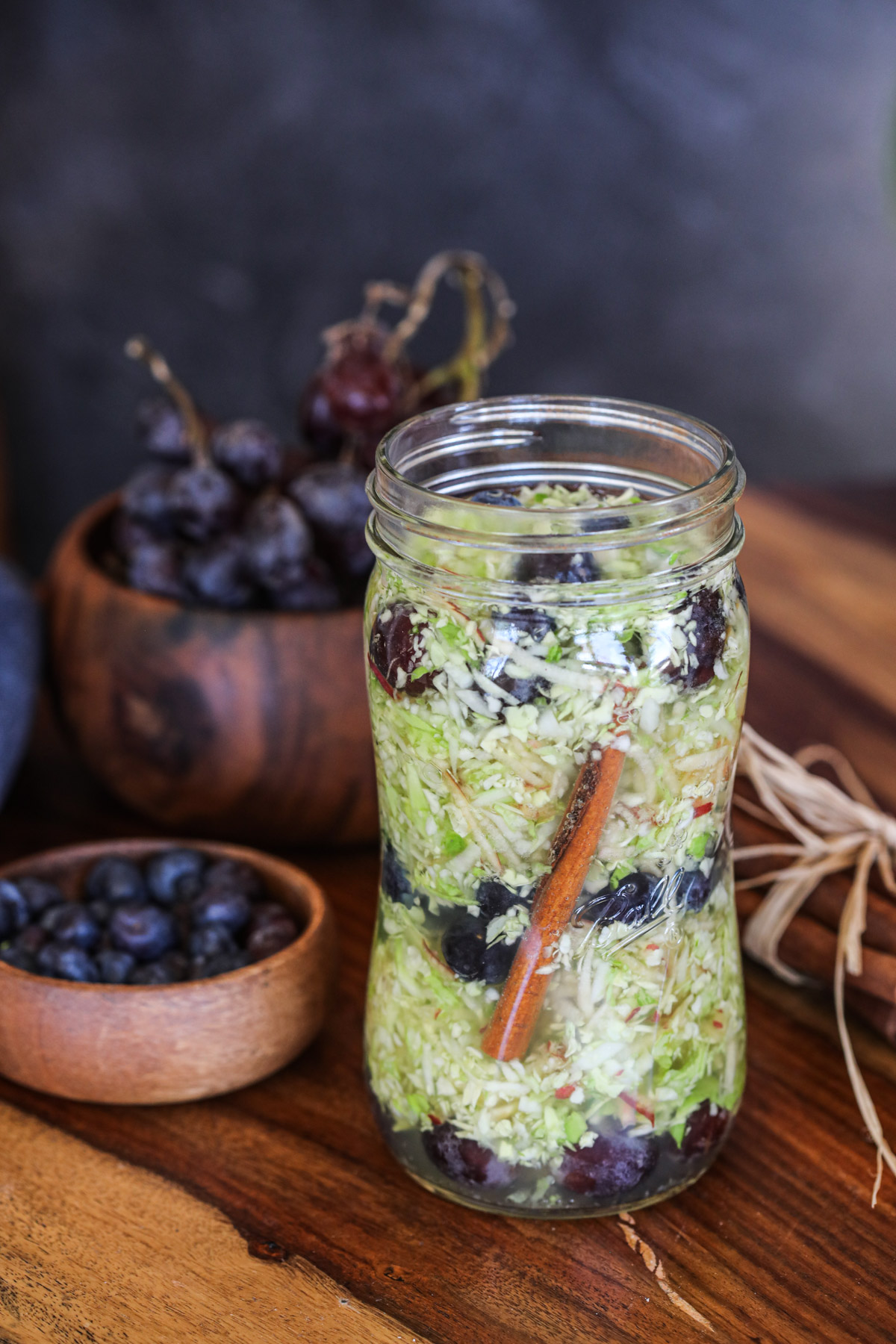
How long do I culture my vegetables on the kitchen counter? Can I leave them longer??
For most vegetables, culturing takes six days at room temperature. There are a few vegetables that will culture in only two or three days, but these shorter times are indicated in the specific recipes. If you culture the vegetables longer than six days, they can get too yeasty. The flavor will change and not for the better. They will also lose some of their probiotics. There are lots of people who will tell you to ferment your kraut for 3 to 6 weeks to get the most benefits and to not use a starter since this is how it was done for thousands of years. I agree that this was a great method; however, we have evolved and found even better ways to preserve the probiotics and make them better. Unfortunately, fermenting it for weeks on end diminishes the probiotics. As it ferments, the bacteria can begin to run out of food. It is still good for you, but it will be less beneficial since the bacteria will not be as plentiful. However, the veggies still have benefits and are safe to eat. The vegetables will continue to ferment after you place them in the fridge, but at a slower rate. The flavors develop and age like a fine wine!
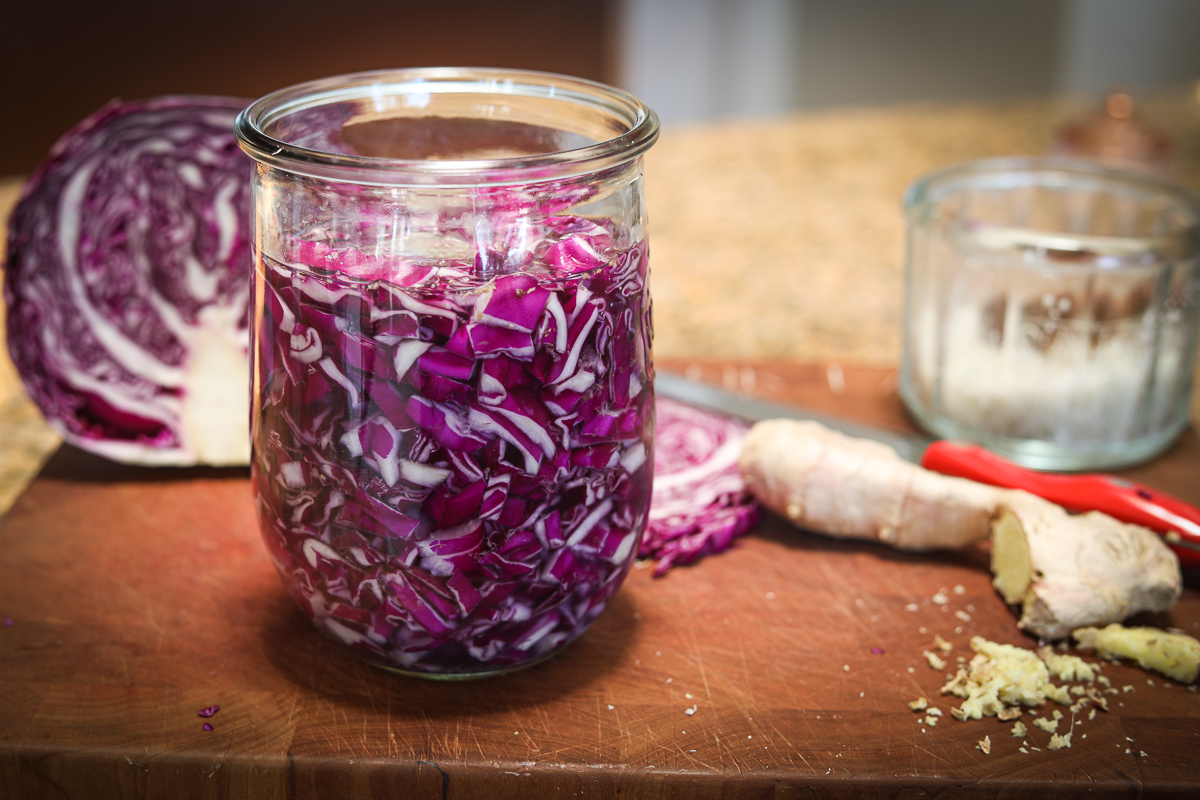
How long can I store my cultured veggies?
In the refrigerator, cultured veggies will keep for up to nine months, and sometimes longer. They continue to ferment but at a much slower rate. I find that many of my vegetables taste better after six weeks in the fridge. It’s fun to taste your vegetables at different stages to find out when you like them best.

Why aren’t my vegetables crunchy?
Salt is the key. Vegetables without salt become soft and slimy. Vegetables made with salt will stay crunchy. It's really important to use a mineral-rich salt like Celtic Sea Salt or Himilyian. Fermentation loves minerals and so does your body and it keeps the veggies crunchy. Always use more salt if you're not using a culture to make your ferments. You need to drop the pH and having enough salt will help you do this. I would double the salt in all the recipes to ensure that the pH is at the correct level needed to cause the proper fermentation.
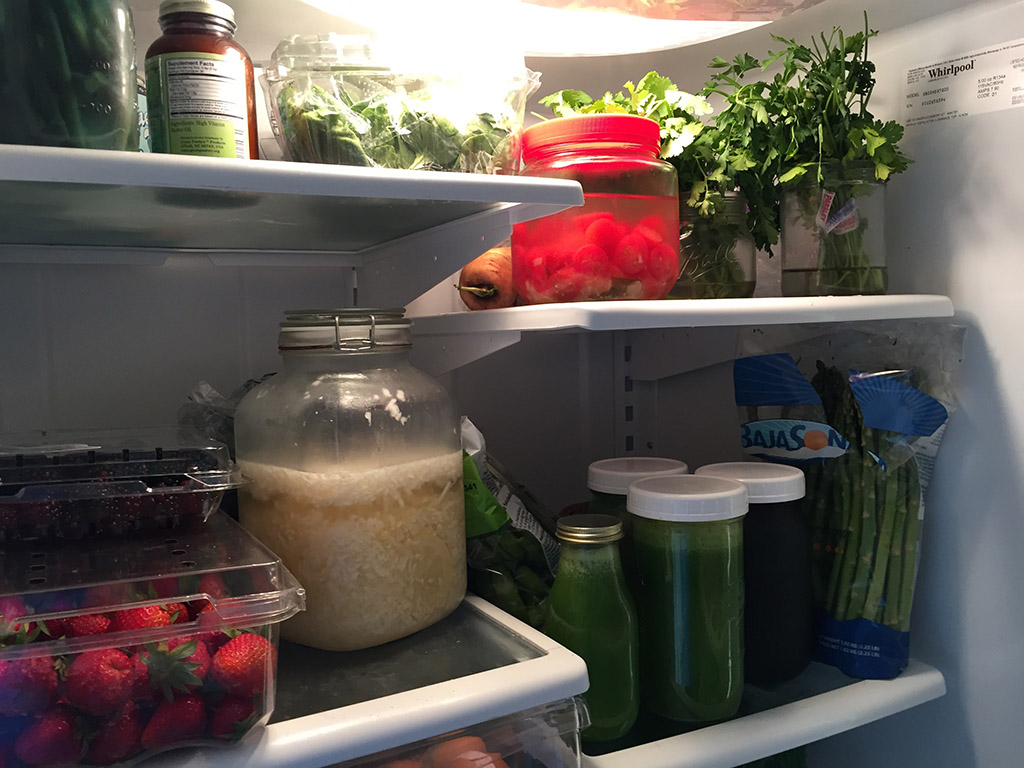
Can these foods be stored out of the fridge after they have been fermented?
Technically, cultured vegetables can be stored in a cooler basement or cold cellar. However, they will continue to ferment, and in short order they won’t taste very good. Cultured veggies do best and taste best at the colder temperatures of a refrigerator.
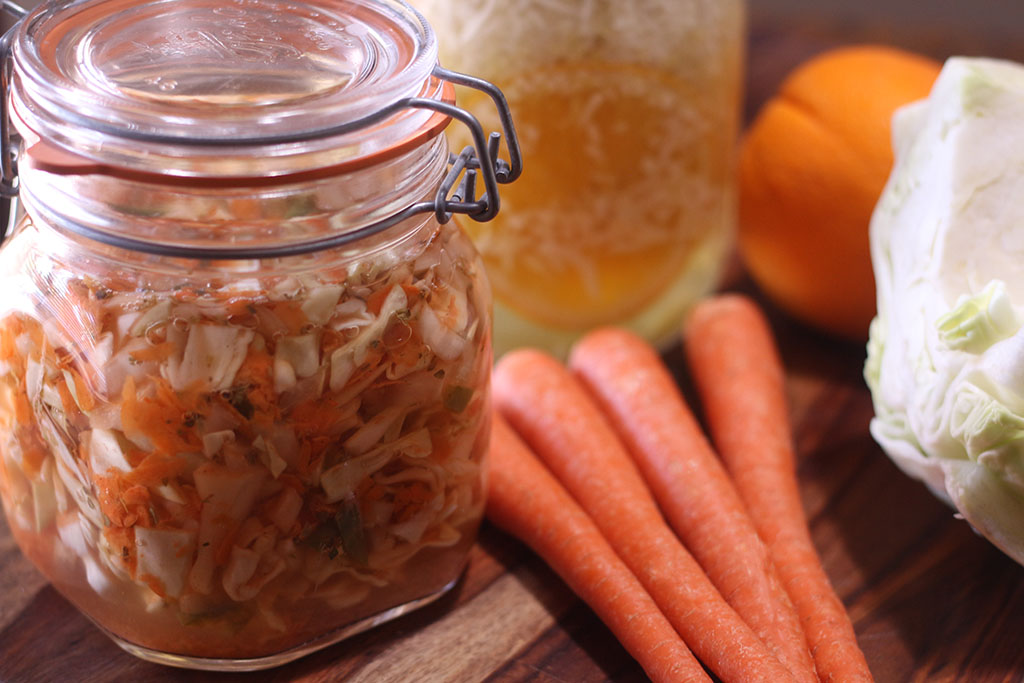
How will I know if my vegetables are properly fermented?
They will taste sour and tart. If your culturing has gone wrong, you will know this by the strong, unappetizing odor the veggies will give off and you might see black spots. This will alert you that something is wrong. Throw them out if they appear like this.
In the twenty years I've been doing this it's only happened to me once and there was a hairline crack in the jar that I didn't know about. Culturing is a very safe form of preservation, check out #4.
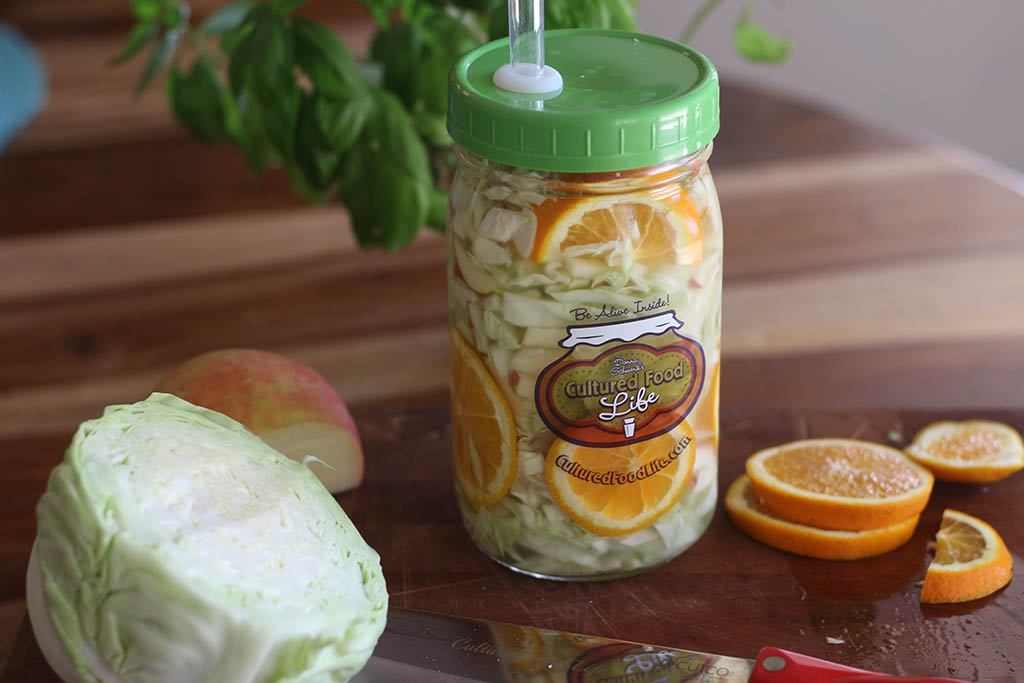
Do I need weights for my cultured vegetables?
In the past, I have used weights to hold down my vegetables. And then I did it without the weights and it worked just as well. Yes, the veggies can climb above the water. You can always open the jar and push them down or leave them the way they are. If the veggies turn brown, remove them. If they get a harmless yeast (kahm) on them, scrape it off. This yeast is most likely to develop if the veggies you use aren't fresh. Airlock lids also help with keeping this yeast at bay and so does adding a culture package. You can just skip the weights, and I am giving you permission to do so. It's just too much hassle and doesn't help that much anyway. I haven't used weights in 18 years and my veggies do great!
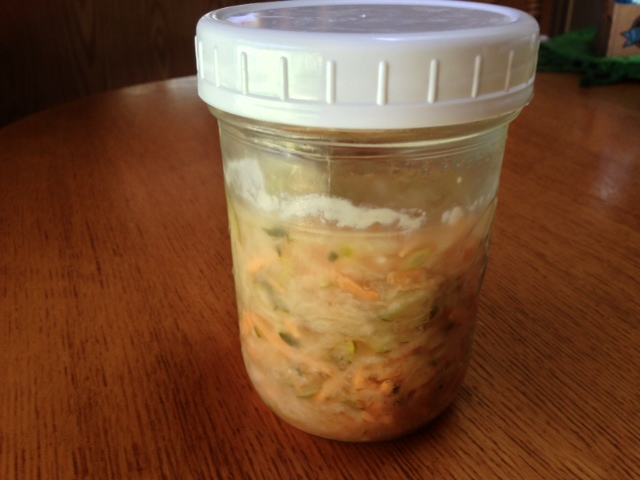
What are the white spots on my veggies?
One of the things that people find most troublesome is what appears to be small areas of white mold growing on the surface of the cultured vegetables. There is no reason for alarm and it is not actually molded but a yeast called kahm yeast. This just means the yeasts have become more dominant than the bacteria and this can be because you're not using a culture or the ph is slightly off. It's not harmful but it can look scary and unpleasant, and even smell a little strong, but it is not a harmful thing. You'll need to scrape off the white parts from the veggies and remove them so they don't ruin the flavor of the vegetables.

What do I do if the liquid is leaking from the jar while my veggies culture?
This liquid is called the brine, and if you made your jar too full the brine might leak out. Not a big deal. Simply open the jar, push the veggies down so they are fully covered, and remove a little bit of the liquid or some of the veggies.

Do I need to use organic vegetables?
It's exciting that microbes can help us by removing pesticides from our vegetables. It's often a hardship for people to always buy organic, but the healthy bacteria L plantarum can remedy this. L. Plantarum helps remove pesticides from non-organic vegetables. The L. plantarum bacterial strains studied from fermented vegetables in kimchi were found to be capable of degrading four different organophosphorus insecticides by using them as a source of carbon and phosphorous. While we think organic is better, you actually don't need to use organic vegetables since the process of fermentation removes the pesticides.
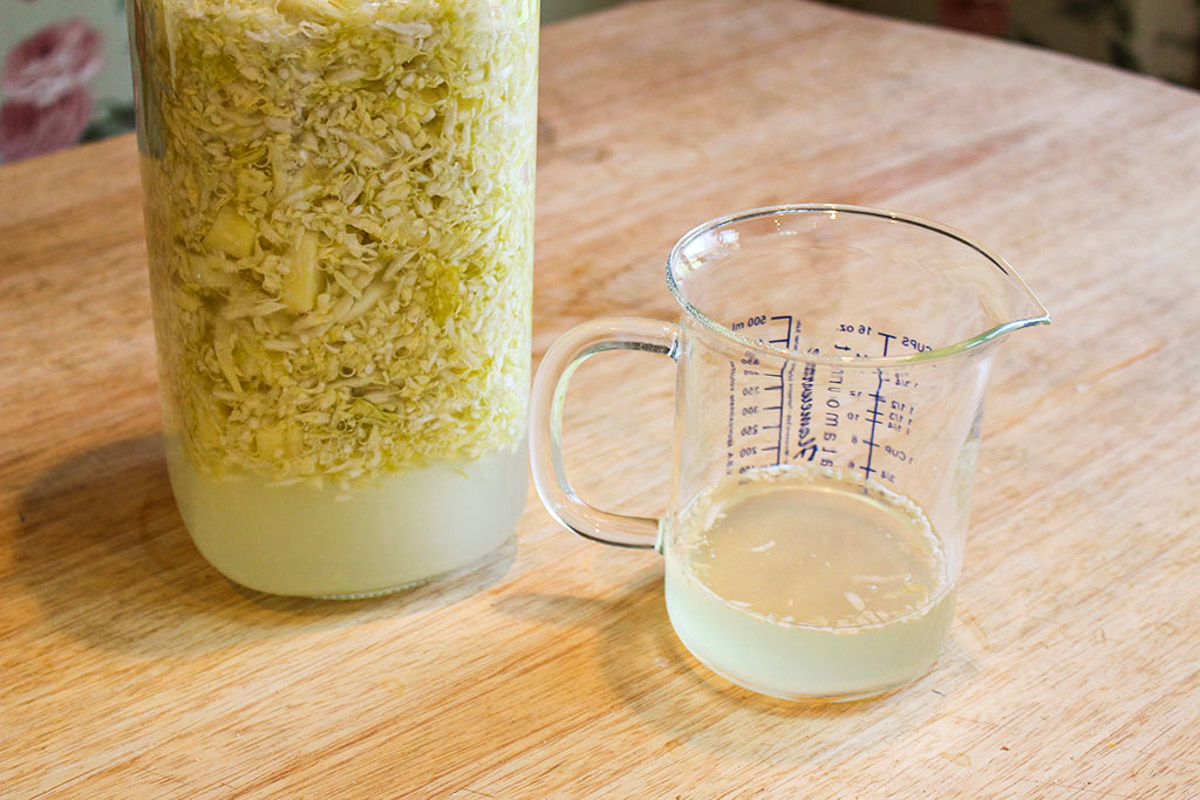
Can I reuse the brine from cultured vegetables?
Yes, you can reuse the brine from cultured vegetables, and here are a couple of things you should know before you do.
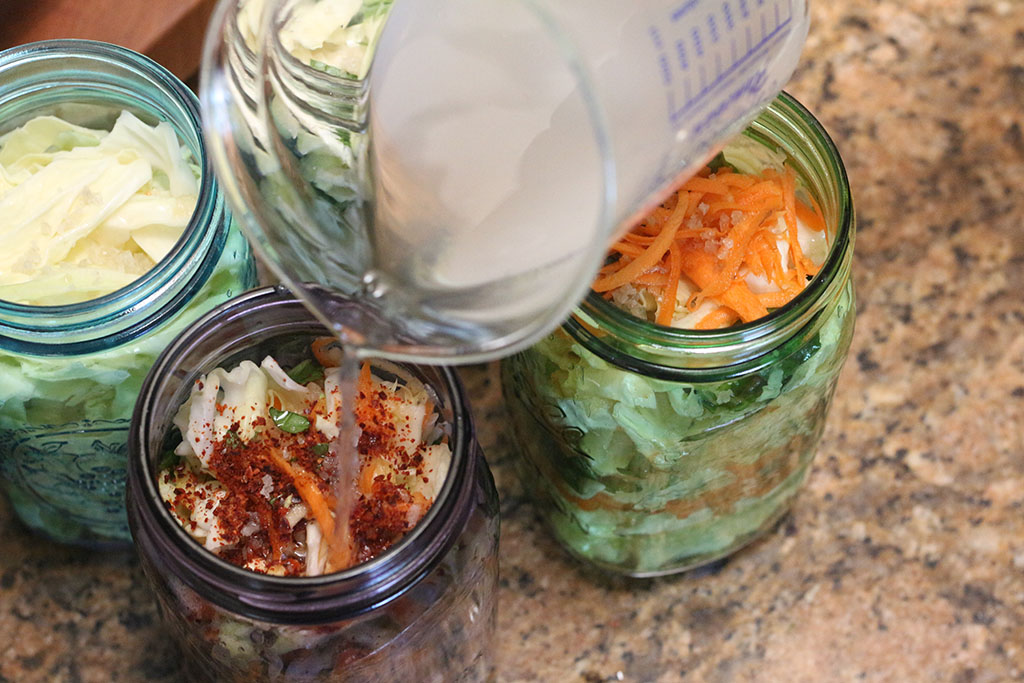
Should all my vegetables be submerged under the water
Yes, your veggies should be under the water as they can develop harmless kahm yeast on them if left above the water too long. Your vegetables will want to float in the jar so you open the jar and push them down if they float. If you can't keep them down then you can remove some of the veggies that turn brown or white and then once they are in the fridge they will calm down and stay submerged.
Check Out This simple Kraut Recipe
Simple Salt and Pepper Kraut
Watch The Video
Equipment
Ingredients
- 1 package Veggie Starter Culture - or you can use ½ cup kefir whey
- filtered or spring water with minerals
- 1 large head cabbage
- 1 tablespoon Celtic Sea Salt
- 2 teaspoons fresh cracked pepper
Every ingredient with a link was selected by me to make it easier for you. I may receive a small affiliate commission if you buy something through my links. Thank you! ❤️
Instructions
- If using the starter culture, stir together the culture and ½ cup of water. Let the mixture sit while you prepare the ingredients—around 10 minutes. If using kefir whey, add it when the recipe calls for culture.
- Remove outer leaves of cabbage. Cut out the core on the cabbage.
- Shred cabbage into desired length. You can use a food processor or by hand. You can chop it finely or in thicker pieces it's up to you!
- Add your cabbage to a large bowl and add salt and pepper and toss with cabbage to combine evenly.
- Add in extra veggies, fruit or seasoning if desired at this point and toss together to evenly combine.
- Pack cabbage into a canning jars. Make sure you save two inches at the top of the jar for the cabbage to expand.
- Add the Cutting Edge Cultures or kefir whey to the jar or jars. Spread it evenly.
- Fill the jar with water. Leave 2 to 3 inches at the top of the jar for kraut to expand.
- Place secure lids or airlocks on jars. Set in a cool place, out of sunlight for 6 to 7 days. After 6 days taste them and if they're tart tasting they're ready, and you can eat them or place them in the refrigerator.
Notes

Listen To My Podcast
It's my favorite time of the year - when I have an abundance of fresh vegetables that I can ferment. Fermented vegetables can last nine months stored in the refrigerator. They can provide you with months of your own probiotics that are much stronger than supplements. We get a lot of questions about making cultured vegetables and we have lots of answers to help you. Check out 16 FAQs about cultured veggies and get the recipe for my Salt and Pepper Kraut too!
Are you on the list?
Sign up today and I'll send you my free Getting Started Guide!
Each week I'll send you updates, tips, recipes, and more! You might even be a winner of my weekly giveaway! (starter cultures, memberships, and more!)
Come be a part of my cultured food family!

